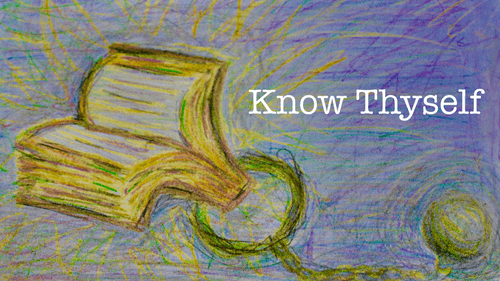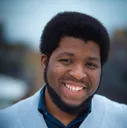Stay in the Loop
BSR publishes on a weekly schedule, with an email newsletter every Wednesday and Thursday morning. There’s no paywall, and subscribing is always free.
Pretentious as hell—and how to fix it
What the Fringe Part 2: Does theater revolve around you, or the other way around?

Pretend for a few minutes that we’re not just theater spectators, but cosmic observers, and the heavenly bodies around us are the shows at this year’s Fringe. Because, what the Fringe, I was not expecting existential revelations at this year’s festival.
As Immanuel Kant once said of Nicolaus Copernicus—yup, the guy who guessed that we revolve around the sun, instead of the other way around—“When he found that he could make no progress by assuming that all the heavenly bodies revolved round the spectator, he reversed the process, and tried the experiment of assuming that the spectator revolved.”
“We may make the same experiment with regard to the intuition of objects,” Kant continues. “If the intuition must conform to the nature of the objects, I do not see how we can know anything of them a priori.” In other words, if our knowledge is anchored to the nature of the objects around us, how can we know anything about them through theoretical deduction, rather than lived experience?
And with that said, let’s get this party started.
The party at the end of the world
Party at DeeDee’s will be one of those shows I remember forever, though it was far from perfect. It had some jank. The dialogue was stiff. The pacing was sluggish and some of the conversations felt aimless. DeeDee was hard to empathize with at first.
But it was my favorite Fringe performance this year.

I didn’t know what to expect. The show description was vague, and necessarily so. What I discovered was a story about a group of 20-somethings who weren’t as worried about the end of the world as they could’ve been (which may say a lot about how futile our future seems at this point). Protagonist DeeDee sought to reconcile with the people she’d inadvertently wronged. She screwed it up over and over, unable to correct her compulsory aberrations.
Yup. That was me in my 20s. And still in my 30s.
The final bow came with the lyrically dissonant song “Komm, süsser Tod,” a cathartic theme from End of Evangelion, a late-‘90s film about the end of the world that had more to do with personal relationships and collective human experiences than with the sensational spectacle of the end. It’s a personal favorite, and Party at DeeDee’s likewise made me feel something we may rarely get to feel, despite being inundated with our digital information age: I felt seen.
Cool. But if we don’t feel seen, it may often be our own fault.
I’m still here
When Copernicus came in and said hey y’all, we are not the center of the universe, that went smoothly, because who doesn’t love hearing that we’re not the center of the universe? How capable are we of humility, of opening ourselves to ideas that may very well wreck everything that we know, especially when what we know is a posteriori—knowledge that’s derived from experience?

I saw Party at DeeDee’s the night of September’s Harvest Moon. I reluctantly took a long walk home after the show, digesting what I’d seen while taking in the celebrated moon that looked like any other moonrise. I serendipitously ran into a friend, who thought I had left Philadelphia and moved to Virginia (where I have family).
I did not feel seen then.
I am a Philly kid, through and through—that much is a priori. So what dissonance did I carry that night leading someone to believe otherwise? Was it similar to my incorrect belief that a show about anxious post-adolescents and the end of the world wouldn’t be for me?
Congratulations, Fringe. You’ve got me wrecking my brain about conflicting definitions of my existence.
I guessed wrong
Operation: Wawa Road Trip plucked at those vibes even more. At first, the title alone drew skepticism. “This is Philly” isn’t, at first glance, a particularly strong theme on its own. We can guess what this story is going to be.
I was wrong.
From nerdy nods and pop culture references that I’d never expect from theater (seriously, they did a whole Mario Kart bit) to the truthful reckoning with grief and family rifts, Operation: Wawa Road Trip was a pleasant surprise.
At the performance I attended, I saw many people that I knew. This, once upon a time, never happened at theaters. When did I become part of this community? How meta to consider this at a show that I assumed was going to be just another Philly romp.
And what does it even mean to feel seen when you’ve got so many folks revolving around the same center?
Chaos is your friend
Know Thyself gave me an existential pain in my side that lasted for days. It was a revealing, immersive theater experience that had me wrestling with my ego. Jessica Ellen Creane’s work has left an enduring mark on me.

The show’s guide character, played by Creane herself, wrapped the narrative in the chaos of being human in the world. “The audience gets this experience of how to use these underlying structures of looking at their own lives,” Creane said in an interview. “They get to make a lot of choices that can be varying degrees of chaos. Chaos has become a friend rather than an outside force.”
For Kant, the mind shapes experience, with all human experience sharing certain structural features. The Fringe draws parallels to the Copernican revolution: it challenges our perception of structure and disregards our previous experiences and understandings.
“So much of it is really figuring it out for yourself, as a participant,” Creane said.
Fringe 2019 dismantled some dated, supercilious notions for me, and it’s going to be work to keep growing beyond that.
We are not the center
To be seen is not to think that the heavenly bodies of theater revolve around your experience. Instead, being seen is getting outside of your own central understandings, with the wherewithal and willingness to uncomfortably break down our a priori into something far less conceited.
In other words, I’m pretentious as hell, and I need to fix that because I’ve been missing out. That itself is a journey, and it takes many reluctant walks home under many dissonant moons. I started this “What the Fringe” two-parter imagining an exploration outside my comfort zone, and ended up discovering shows that I should’ve known were meant for me.
Perhaps I don’t know myself well enough to be seen.
Before the next Fringe comes around, consider this. As spectators orbiting the sun of the theater, what are we looking at?
Sign up for our newsletter
All of the week's new articles, all in one place. Sign up for the free weekly BSR newsletters, and don't miss a conversation.

 Kyle V. Hiller
Kyle V. Hiller